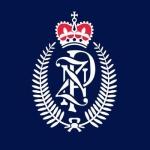Police spurred on by fall in crime
Latest crime statistics show recorded crime continued to drop in 2011, with a 4.8 percent decrease from the last calendar year.
This result represents the lowest number of recorded offences for New Zealand for fifteen years, and continues the steady decline in recorded crime over previous years.
There were 20,289 fewer offences recorded in 2011 than during the previous calendar year, with 406,056 offences recorded between 1 January 2011 and 31 December 2011.
After taking into account the 0.8 percent rise in New Zealand’s resident population over the same period, the fall in crime rate for 2011 is 5.6 percent.
Deputy Police Commissioner Mike Bush said that the results are a good sign that police and the public remain serious about reducing crime, but that we still have much to do.
“These results show us that we’re on the right track with our frontline focus and the work we’re doing with communities and other agencies to prevent crime from happening in the first place.
“It just motivates us to do even more to keep the downward trend going. We stay firmly targeted on bringing crime further down across the board.”
The largest decreases were in Canterbury (-22.2 percent), Southern (-13.1 percent), Northland (-10.5 percent), and Bay of Plenty (-5.6 percent). Auckland City and Waikato were the only two districts that saw an increase with 8.3% and 1.7% respectively.
The overall national resolution rate remains relatively steady at 47 percent.
Homicide and related offending dropped 14.4 percent, down 14 offences from last year. Last year saw the lowest number of murders in a calendar year since 1995, with 39 murders recorded, compared with 46 in the 2010.
The latest figures also show that:
• Acts intended to cause injury, which are mainly assault-related offences, dropped by 5 percent (down 2,237 offences) in 2011.
• Illicit drug offences reduced by 9.8 percent, from 22,995 to 20,739 offences. The largest reductions were in cannabis (-11.6 percent) and new drugs, mostly methamphetamine (-10.8 percent).
• Theft and related offending, which makes up over 30 percent of all recorded offences, was down by 1,490 offences this year, a 1.1 percent reduction on the previous year. Nationally, 20,724 vehicles were recorded stolen (up by 733) but thefts from cars dropped from 38,669 offences to 38,174.
• Recorded sexual assault and related offences, known to be under reported to Police in previous years, rose by 14.9 percent, which means 450 more offences were reported in 2011 than in the previous year.
• Property damage and environmental pollution offences, the majority relating to wilful damage, dropped by 11.1 percent. The decrease may be attributed to higher levels of security in high risk areas, including increased patrols.
• Abduction, harassment and other related offences against a person dropped by 8.5 percent in 2011, and robbery, extortion and related offences dropped by 7.3 percent.
• Offences related to dangerous or negligent acts endangering persons, which makes up less than half a percent of all recorded crime, rose by 14 percent in 2011, an increase of 120 offences from the previous calendar year.
“Last year saw New Zealand dealing with significant events. We dealt with devastating lows like the Canterbury earthquakes and experienced highs like the Rugby World Cup,” says Deputy Commissioner Mike Bush.
“This continued drop in crime is a good indication that, at a fundamental level, New Zealand is fed up with crime and serious about getting the numbers of offences down.
“Police want to make the most of that, which means stepping up our focus on working more closely with communities and other agencies to stop crime from happening in the first place by addressing the risks that lead to offending.
“These results are one indicator we use to tell us what’s working, where we can do more, and where our resources should be pointed.
“More and more we know that effective policing is about having the right people in the right place at the right time; this includes taking opportunities to address the risks of offending while keeping our frontline strong and active in addressing crime.
“That’s why we have a new operating model under our Policing Excellence strategy that is more strongly aimed at freeing up our people on the frontline to go where they’re needed and take action where it’s warranted.
“It gives us a framework that allows us to keep working to better understand the risks, better understand where our work has the most impact and the best outcomes for New Zealand.
“It puts preventing crime and making people, especially victims, safe at the heart of everything we do.”
Deputy Commissioner Bush says that the Government’s increased focus on public agencies working more closely together is another indication that the time is right to address crime more proactively.
“More and more we are thinking and acting strategically, looking at the bigger picture and understanding the full impact of reducing crime on New Zealand’s present and future.
“There’s definitely strength in numbers. Working together more closely means as public agencies we can better target our resources in the right ways, addressing the serious matters that are costing people their lives, their wellbeing, their ability to live and work safely – and ultimately New Zealand’s ability to thrive as a country, socially, culturally and economically.”
But despite the positive results, Deputy Commissioner Bush is clear that the pressure on crime is here to stay.
“We are very clear about our job and what we need to do to make New Zealand a safe place to live, work and visit.
“Ask any member of Police and they’ll tell you that one victim is one victim too many.
“Our job is not done, but we are on the right track.
“These latest crime statistics merely spur us on.”
